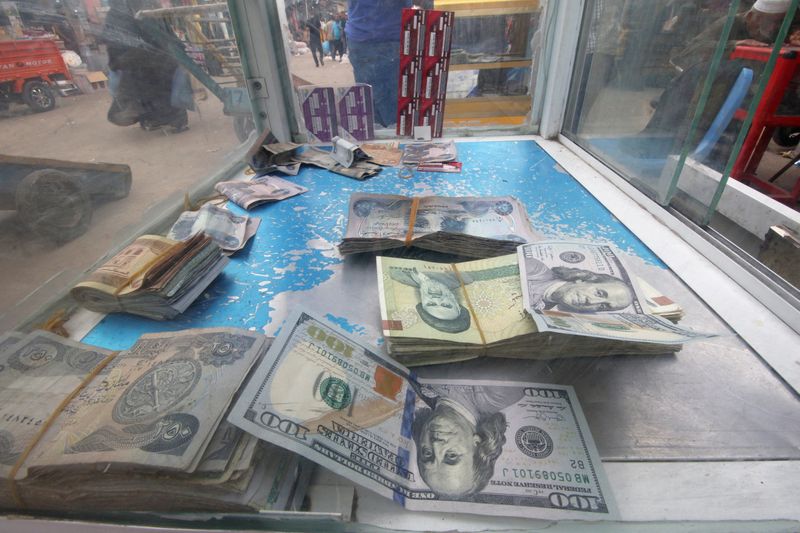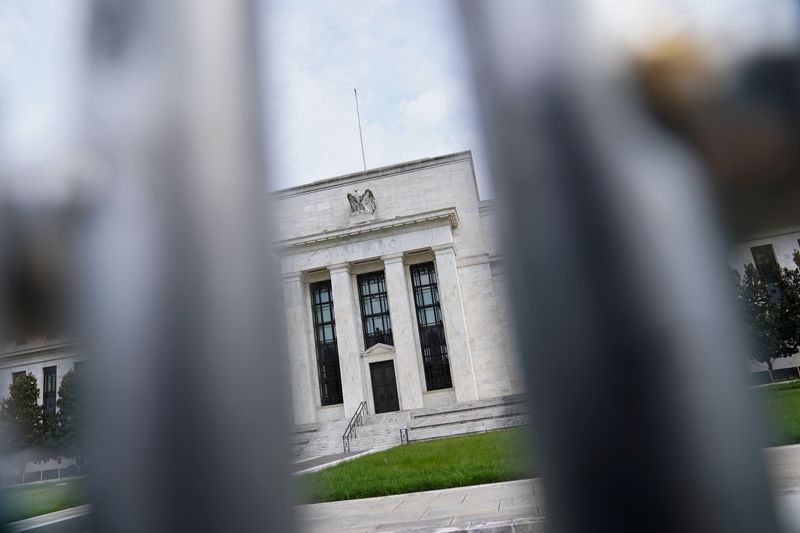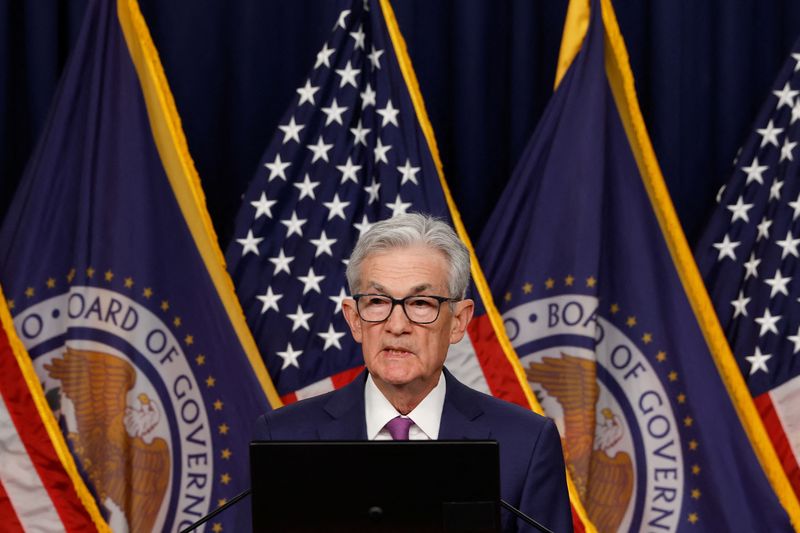Select Language

SYDNEY (Reuters) - A senior U.S. state department official urged Papua New Guinea(PNG) to turn down China's offer of a potential security pact, warning the Pacific nation that any security guarantee with Beijing comes with consequences and costs.
"We've seen that the Chinese commitment in defence or investment comes with a high cost. That's what we'd say to PNG," United States Deputy Secretary of State Richard Verma told the Sydney Morning Herald in an interview published on Monday.
Papua New Guinea Foreign Minister Justin Tkachenko told Reuters last week that it was in early talks with China on a potential security deal. China has offered to assist PNG's police force with training, equipment and surveillance technology, Tkachenko said.
The U.S. and ally Australia for decades have seen the Pacific as their sphere of influence, and are seeking to deter the island nations from forming security ties with China, after Beijing signed a security pact with Solomon Islands in 2022.
Verma, in Australia last week after visiting the South Pacific, said it was a competition for influence in the resource-rich region, and that "we have to compete aggressively".
His comments came ahead of an address by PNG Prime Minister James Marape to the Australian parliament later this week. PNG has previously said Australia and the U.S. were its security partners, while China was an important economic partner.
"We would like to see people choose security arrangement or investment opportunities or advanced connectivity with countries that play by the rules, that live up to the international standards," Verma said.
"China has shown that it is not doing that. China has shown that it's not interested in the modern rules-based order."
He warned about the "false promise of authoritarian regimes" and said countries in investment arrangements with China have found that it can be a "debt trap".
"There are other options out there," Verma said.

CAIRO (Reuters) -Egypt's central bank raised its overnight interest rates on Thursday by 200 basis points (bps), a move some analysts said may indicate a currency devaluation is on the way.
The bank hiked the lending rate to 22.25% and the deposit rate to 21.25%, its Monetary Policy Committee said in a statement.
Most analysts did not expect a hike. The median forecast in a Reuters poll of 16 analysts was for the central bank to hold rates steady. Six analysts expected a hike of between 100 and 300 basis points.
"The hike is likely coming ahead of a EGP devaluation and the announcement of an expanded IMF deal," said Monica Malek of Abu Dhabi Commercial Bank.
Egypt has been in talks for the last two weeks with the International Monetary Fund to revive and expand a $3 billion loan agreement signed in December 2022.
IMF disbursements on the loan were put on hold last year after Egypt did not follow through on a pledge to let the Egyptian pound (EGP) respond to market forces and instead fixed it against the dollar in March.
Farouk Soussa of Goldman Sachs disagreed a devaluation was imminent. The rate hike "is the start of a process of policy tightening," he said. But that "will take some time and must be supported by enhanced FX liquidity."
The Egyptian pound, fixed at 30.85 to the dollar since March, has been trading on the black market as low as 71 pounds.
Egypt's already weak economy was hit by the Gaza crisis, which dampened tourism and decreased shipping through the Suez Canal, a major source of foreign currency.
The MPC said growth fell to 2.7% in the third quarter of 2023 from 2.9% in the second and was expected to continue softening through June.

By Rae Wee
SINGAPORE (Reuters) - The dollar fell broadly on Friday in a bout of positive risk sentiment following upbeat big tech earnings on Wall Street, while traders awaited U.S. jobs data due later in the day to gauge how soon the Federal Reserve could begin easing rates.
The closely watched nonfarm payrolls report later on Friday comes on the heels of the Fed's latest policy meeting where rates were kept steady as expected, though Chair Jerome Powell pushed back against market expectations of rate cuts in March.
Ahead of the release, the greenback dipped against a basket of currencies, extending a 0.5% fall in the previous session.
The dollar index was last at 103.02 and on track for its first weekly decline for the year.
The risk-on mood helped the Aussie tack on 0.17% to last trade at $0.6583, though it was on track to end the week only about 0.2% higher, as its gains were capped by a sharp slowdown in domestic inflation.
The New Zealand dollar rose 0.07% to $0.6149 and was on track for a weekly rise of nearly 1%, its best performance in over a month.
"If we have a relatively soft payrolls number... then I think you'd probably see the needle move a little bit further back, closer to 50-50" for March rate cut expectations, Ray Attrill, head of FX strategy at National Australia Bank (OTC:NABZY), said of Friday's U.S. jobs report.
"I think the dollar will be quite sensitive to that."
Market pricing now shows a 38% chance of a Fed cut in March, as compared to an over 70% chance a month ago, according to the CME FedWatch tool. A cut in May is almost fully priced in.
"We continue to expect three rate cuts to take place in 2024, with the first cut taking place mid-2024, (followed) by subsequent cuts each quarter," said Raf Choudhury, investment director of multi-asset at Abrdn.
"We do think the market pricing in five or more cuts as soon as March seems ambitious and have more confidence in the dot plots which signal three cuts this year."
Still, the prospect of lower U.S. rates have sent Treasury yields sliding, with the two-year yield, which typically reflects near-term interest rate expectations, last at 4.2086%. It has fallen roughly 15 basis points this week.
The benchmark 10-year yield, which has meanwhile tumbled nearly 30 bps for the week, last stood at 3.8840%.
Analysts said renewed jitters over regional U.S. banks this week also sparked a flight into the safe-haven Treasuries. Bond yields move inversely to prices. [US/]
In other currencies, the yen gained 0.1% to last stand at 146.29 per dollar. It was poised for a weekly gain of nearly 1.3%, its best week in over a month.
A summary of opinions from the Bank of Japan's (BOJ) January meeting out this week showed policymakers discussed the likelihood of a near-term exit from negative interest rates and possible scenarios for phasing out the bank's massive stimulus programme.
That highlighted a growing view within the board that conditions were falling in place to soon pull short-term interest rates out of negative territory, which would be Japan's first interest rate hike since 2007.
Elsewhere, sterling rose 0.09% to $1.2754.
The Bank of England (BoE) kept interest rates at a nearly 16-year high on Thursday but opened up the possibility of cutting them as inflation falls.
"The (Monetary Policy Committee) - following the Fed - kept the Bank Rate target at 5.25% and dropped the 'tightening' bias in favour of a neutral bias," said Thierry Wizman, Macquarie's global FX and rates strategist.
"But, also like the Fed's tone... there was a decidedly cautious aspect to the MPC's communications to counter the switch in the policy bias."
The euro edged 0.07% higher to $1.0879 and was eyeing a weekly gain of more than 0.25%.
Data on Thursday showed euro zone inflation eased as expected last month but underlying price pressures fell less than forecast, likely boosting the European Central Bank's argument that rate cuts should not be rushed.

WASHINGTON (Reuters) - U.S. construction spending increased more than expected in December amid a surge in single-family homebuilding, and further gains are likely as mortgage rates decline.
The Commerce Department said on Thursday that construction spending rose 0.9%. Data for November was revised higher to show construction spending advancing 0.9% instead of 0.4% as previously reported. Economists polled by Reuters had forecast construction spending gaining 0.5%.
Construction spending shot up 13.9% on a year-on-year basis in December. It increased 7.0% for all of 2023. Spending on private construction projects increased 0.7% in December after rising 1.1% in November. Investment in residential construction soared 1.4% after advancing 1.0% in the prior month.
Outlays on new single-family construction projects jumped 1.6%. Demand for new construction is being driven by a perennial shortage of previously owned homes on the market.
Single-family home building is likely to rise further this year amid lower borrowing costs.
The Federal Reserve left interest rates unchanged on Wednesday. Fed Chair Jerome Powell offered a sweeping endorsement of the economy's strength, telling reporters that interest rates had peaked and would move lower in coming months.
The U.S. central bank has raised its policy rate by 525 basis points since March 2022 to the current 5.25%-5.50% range.
The rate on the popular 30-year fixed-rate mortgage has tumbled from a 23-year high of 7.79% in late October and is hovering in the mid-6% range, according to data from mortgage finance agency Freddie Mac.
Outlays on multi-family housing projects gained 0.3% in December. With the rental vacancy rate near three-year highs and a large stock of multi-family housing in the pipeline, scope for growth this year is limited.
Outlays on private non-residential structures like factories fell 0.2%. Spending on manufacturing construction projects dipped 0.1% as the boost from a policy by the Biden administration to bring semiconductor manufacturing back to the United States fades.
Spending on public construction projects increased 1.3% after gaining 0.5% in November.
State and local government spending rose 0.9% while outlays on federal government projects surged 6.4%.

By Howard Schneider
WASHINGTON (Reuters) -U.S. worker productivity gains running well above the long-term average may help buttress the Federal Reserve's faith that inflation is contained and further open the door to interest rate cuts policymakers anticipate will start in coming months.
Output per worker, a key gauge of how fast the economy can grow without rising inflation, increased 3.2% in the last quarter of 2023, the third quarter of productivity gains above 3% in a series that averaged about 1% from 2010 through 2019.
Fed Chair Jerome Powell spoke at his Wednesday press conference about the advantages rising productivity holds for the Fed's inflation fight, offering the prospect of more jobs and stronger economic growth with less pressure on prices.
But while the productivity numbers may be more an explanation of why inflation has been falling as opposed to a signal about what comes next, Powell no longer says the economy needs to go through a period of sluggish, below-potential growth for the pace of price increases to decline from a level still described by the Fed as "elevated."
The need for weak growth to cool inflation had been a working premise of Fed policy for much of its fight against rising prices. Its disappearance from Powell's rhetoric points to some faith that output per worker will remain healthy, and unit-labor costs will stay muted. Beyond lowering inflation pressures, rising productivity leaves more room for wage gains since each worker hour is providing more goods and services.
"Whereas a year ago we were thinking that we needed to see some softening in economic activity that hasn't been the case...We don't look at it as a problem," Powell said. "I think at this point, we want to see strong growth, we want to see a strong labor market. We're not looking for a weaker labor market. We're looking for inflation to continue to come down as it has been coming down for the last six months."
'ELEVATED' FOR HOW LONG?
The Fed at its meeting this week finished a policy evolution that began last year, removing a presumption of further rate hikes in favor of a neutral stance and an acknowledgment that rates could fall once policymakers are more confident inflation will continue moving toward its target.
"The Committee does not expect it will be appropriate to reduce the target range until it has gained greater confidence that inflation is moving sustainably toward 2%," the Fed said in its statement.
Investors expect a first rate cut in May, but on the way there policymakers will have to make a judgment - and likely reflect it in public comments - that the pace of inflation is no longer elevated.
That may just be a matter of time. While the Personal Consumption Expenditures price index used by the Fed to set its target was last at 2.6% on a yearly basis, the eight-month pace since April annualizes to a below-target 1.9%.
Powell on Wednesday said he did not think there will be enough data in hand by the March 19-20 meeting to reduce rates. But by the April 30-May 1 meeting policymakers will have received a full suite of first-quarter data on consumer inflation, PCE, jobs, wages, and an estimate of economic growth for the first quarter of the year.
All will be watched as policymakers consider when to finally remove the word "elevated" from the description of inflation in their policy statement.
Also important are survey and market measures of inflation expectations, something policymakers feel need to remain consistent with the 2% target for them to trust that inflation will "settle" there, not just "tap" it, as Powell said.
While currently at 2.9%, the most recent University of Michigan survey of household inflation expectations for the next year is within the range seen before the pandemic, and Fed officials consider them largely consistent with their target. Officials also see market measures of inflation, such as the breakeven rates on Treasury Inflation Protected Securities, as well "anchored."
ACHIEVING 'GREATER CONFIDENCE'
Other data on the job market, like measures of layoffs, quit rates, and labor turnover, are near where they were before the pandemic.
"The labor market by many measures is at or nearing normal," Powell said, though wages were still "not quite back to where they would need to be in the longer run."
New hourly wage data for January will be released on Friday.
But after Powell noted how much recent disinflation hinged on actual declines in the prices of some goods, meaning future headline inflation could rise even if goods prices simply stay stable, analysts pointed to two longstanding inflation concerns as key to Fed confidence-building: housing and services.
Declines in housing inflation should be almost mechanical in coming months as easing market rents make their way into the inflation indexes. Services price increases may prove stickier and be the final hurdle to clear for officials to describe inflation as something other than elevated.
Wage growth still above a level Fed officials see compatible with 2% inflation could also come into play.
"There may be enough voices on the (Federal Open Market) Committee that remain concerned about services inflation - and shelter inflation in particular - and wage growth to keep the Fed on hold for longer," Bank of America analysts wrote. "We think achieving 'greater confidence' requires more evidence that services inflation is consistent with 2% outcomes in the event that goods price declines stop, and a further slowing in wage growth to 3.5%."

By Michael S. Derby
NEW YORK (Reuters) -Changes last week to a Federal Reserve lifeline for banks should not impair the facility's ability to provide liquidity to banks that still genuinely need the cash, and also have appeared to deter a steady rise in borrowing over recent months, market analysts believe.
That is because the facility, known as the Bank Term Funding Program, or BTFP, still offers fairly easy terms conditions to access it even as it now costs more to borrow from the central bank, the analysts said. That is important, since over recent days some regional Fed banks have run into challenges that have in turn stoked worries about the sector, thus raising questions whether the central bank was premature in tightening access to the BTFP.
Just over a week ago, the Fed raised the borrowing rate on the BTFP, an effort launched in March to provide easy cash to eligible banks amid the high-profile implosion of Silicon Valley Bank, which in turn had raised fears of broader banking sector stress.
The BFTP borrowing rate now matches the interest on reserves rate at 5.4%, representing around an immediate half-percentage-point rise in borrowing costs for those aiming to take on new BTFP loans. The Fed also affirmed the program would shut down as planned on March 11.
Raising the rate was widely viewed as a way to arrest a vexing rise in borrowing at the facility despite no apparent signs of bank stress. The change appears to have had some impact, with banks borrowing $165.2 billion from the facility as of Jan. 31, from $167.8 billion on Jan. 24.
By raising the rate, the Fed in theory closed off what had been an ability by banks to borrow cheap cash from the Fed and lend at higher rates in private markets or even to the Fed itself. The BTFP borrowing rate is now higher than the rate seen on many private money market securities and matches what the Fed pays banks to park reserves at the central bank.
Borrowing at the BTFP has "probably peaked" given the new terms and the retreat in usage was "what you would have expected," said Steven Kelly, associate director of research at the Yale School of Management's Program on Financial Stability.
Raising the rate “was the right move,” said Joseph Wang, chief investment officer at Monetary Macro. Moving the BTFP rate to the interest on reserve rate “weeds out the opportunistic borrowing and leaves those that actually need the cash.”
Derek Tang, an analyst with forecasting firm LH Meyer, also believes the facility remains in a good place to provide support, noting banks have been using it “not because of the lower BTFP rate…but because BTFP was so much looser with collateral valuation and margin, and that hasn't changed.”
Despite jittery markets, Fed officials do not themselves appear concerned about the health of the banks. That confidence appeared to embolden policy makers to take out of the Federal Open Market Committee policy statement released Wednesday language describing the banks as "sound and resilient," words first employed in the March 2023 statement and carried forward until the latest FOMC gathering.

(Reuters) - Goldman Sachs pushed back its expectation of the U.S. Federal Reserve starting interest rate cuts to May from March, after Chair Jerome Powell's signaled delays in cuts.
The Wall Street brokerage, in a note dated Wednesday, maintained its forecast of five 25 basis points rate cuts this year and expects four consecutive cuts starting in May through September and a final cut in December.
The Fed kept its policy rate unchanged on Wednesday at 5.25%-5.50%.
Chair Jerome Powell declined to declare victory in the U.S. central bank's two-year inflation fight, vouch that it had achieved a sought-after "soft landing," or promise that rate cuts would come as soon as the Fed's March 19-20 meeting.

By Idrees Ali, Alexandra Alper and Michael Martina
WASHINGTON (Reuters) -The United States on Wednesday added more than a dozen Chinese companies to a list created by the Defense Department to highlight firms it says are allegedly working with Beijing's military, as part of a broader effort to keep American technology from aiding China.
New additions to the list, first reported by Reuters, were posted on the Department of Defense website and include memory chip maker YMTC, artificial intelligence company Megvii, lidar maker Hesai Technology and tech company NetPosa.
Amid strained ties between the world's two biggest economies, the updated list is one of numerous actions Washington has taken in recent years to highlight and restrict Chinese companies that is says may strengthen Beijing's military.
A spokesperson for the Chinese embassy in Washington said China opposed the move and called it an abuse of state power, adding that it ran counter to the U.S.'s "alleged commitment to market competition and international fair trade."
Hesai Group said it does not sell products to any military in any country and it does not have ties with any military. The company said it was disappointed to be added to the list.
YMTC, and Megvii did not immediately respond to requests for comment.
While being placed on the list doesn't involve immediate bans, it can be a blow to designated companies' reputations and represents a stark warning to U.S. entities and companies about the risks of conducting business with them. It could also add pressure on the Treasury Department to sanction the companies.
In addition, the 2024 National Defense Authorization Act added some teeth to the "Section 1260H" list, prohibiting the Defense Department under Section 805 of the law in coming years from contracting with any of the designated companies.
"The Defense Department's updated 1260H list underscores China's unwavering commitment to its military-civil fusion strategy," said Craig Singleton, a senior fellow at the Foundation for Defense of Democracies.
"Being listed on 1260H poses major reputational risks to Chinese companies," he added, noting that some Chinese firms have tried to be removed from the list.
Other firms added on Wednesday include China Three Gorges Corp, China Construction Technology Co and Yitu Network Technology, as well as publicly traded companies Chengdu JOUAV Automation Tech Co, Chengdu M&S Electronics Technology Co, Guizhou Aviation Technical Development Co, and ShenZhen Consys Science & Technology Co.
They join previously listed aviation company AVIC, BGI Genomics Co, China Mobile (NYSE:CHL), energy company CNOOC (NYSE:CEO) and China Railway Construction Corp.
Separately on Wednesday, senior U.S. officials, including FBI Director Christopher Wray, warned that hackers linked to China's government are preparing to cause "real-world harm" by targeting critical U.S. infrastructure, such as water treatment plants, the electric grid, oil and natural gas pipelines, and transportation hubs.

By Veronica Dudei Maia Khongwir
BENGALURU (Reuters) - Indonesia's economy grew 5.0% in the fourth quarter from a year earlier, supported by resilient domestic consumption, despite exports shrinking and commodity prices falling, a Reuters poll of 23 economists found.
Growth in Southeast Asia's largest economy was mostly driven by private consumption which remains strong against a cumulative 250 basis points of interest rate hikes by Bank Indonesia since August 2022.
The poll median for 5.00% growth last quarter from the previous year was slightly faster than the 4.94% expansion in the preceding quarter. The latest data will be released on Feb. 5.
On a quarter-on-quarter basis, the economy grew 0.41% in the October-December period, according to a smaller sample in the Jan. 25-31 Reuters poll.
"The current policy rate is not tight enough to hinder economic growth because consumer appetite to withdraw loans remains robust and we saw good performance in terms of consumption, working capital and investment", said Irman Faiz, an economist at Bank Danamon.
"Bank Indonesia is on the same page with us, they are seeing resilient growth last year, despite the global economic slowdown and export contraction."
The resource-rich country recently reported a fall in its 2023 trade surplus as exports and imports dropped amid falling commodity prices.
Furthermore, weak demand from China, Indonesia's biggest trading partner, adds more pressure on its exports.
"Monthly exports and imports fell in year-on-year terms throughout the last quarter, the former being hit by weaker demand from China and other major export partners," said Jeemin Bang, an associate economist at Moody's (NYSE:MCO) Analytics.
"Indonesia's economic expansion has been relatively stable in recent years, and we expect this to continue. Moreover, consumption growth will moderate from here, with the post-pandemic recovery largely run its course."
The economy was forecast to have grown 5.0% in 2023 - within Bank Indonesia's estimate of 4.5% to 5.3% - and will do so at the same pace this year, a separate Reuters survey showed.

By Michael S. Derby
NEW YORK (Reuters) - U.S. Federal Reserve Chair Jerome Powell said on Wednesday that officials have begun discussing what it would take for them to stop the ongoing run-off of the central bank's balance sheet.
Balance sheet run-off "has gone very well," Powell said at his press conference following the latest rate-setting Federal Open Market Committee meeting. He was referring to a process known as quantitative tightening, or QT, which involves the Fed allowing its holdings of cash and bonds to contract by way of allowing Treasury and mortgage bonds it owns to mature and not be replaced.
QT, which has seen the Fed shrink its holdings by over $1.3 trillion to $7.7 trillion, has run independently from the Fed's rate hike cycle but nevertheless complements it. And with rate cuts standing as the Fed's next likely move, many in markets have been expecting the central bank to wind down QT this year as well.
"We're getting to that time where questions are beginning to come into greater focus about the pace of run-off and all that," Powell said. "So at this meeting, we did have some discussion of the balance sheet, and we're planning to begin in-depth discussions of balance sheet issues at our next meeting in March."
The pace of debate pointed to by Powell suggests the QT effort could be in play for longer than many top Wall Street analysts had been expecting.
Going into this week's FOMC meeting, signs of a rapid pull-back in key measures of market liquidity had driven a number of analysts to argue the Fed would lay out the start of a formal plan to shutter the QT effort at the March meeting. Some even saw QT ending by summer.
The Fed is widely expected to slow at some point the speed at which it allows Treasury securities to run off the balance sheet, reducing the current cap of $60 billion. As the Fed wants to get back to an all government bond portfolio and has struggled to reach the $35 billion per month cap on the mortgage bond run-off, many expect the Fed to allow that type of contraction to continue even after QT ends.
Slowing the rundown is a prelude to stopping QT altogether, but some have argued that an earlier slowdown of QT could give the Fed more space to run the effort for longer. The Fed is trying to strip the market of excessive liquidity added in the response to the pandemic, and doesn't want to push QT too far lest it destabilize money market rates.
Many have looked to the Fed's reverse repo facility as a proxy for excessive liquidity and have argued that facility, which peaked at about $2.6 trillion on the final trading day of 2022 and was at $615.4 billion on Wednesday, will likely fall to zero before QT can stop. But Powell suggested that might not be right.
The correct level for the reverse repo facility is "not a decision that we've made," Powell said, adding "we wouldn't be taking a position it's got to go to zero."

